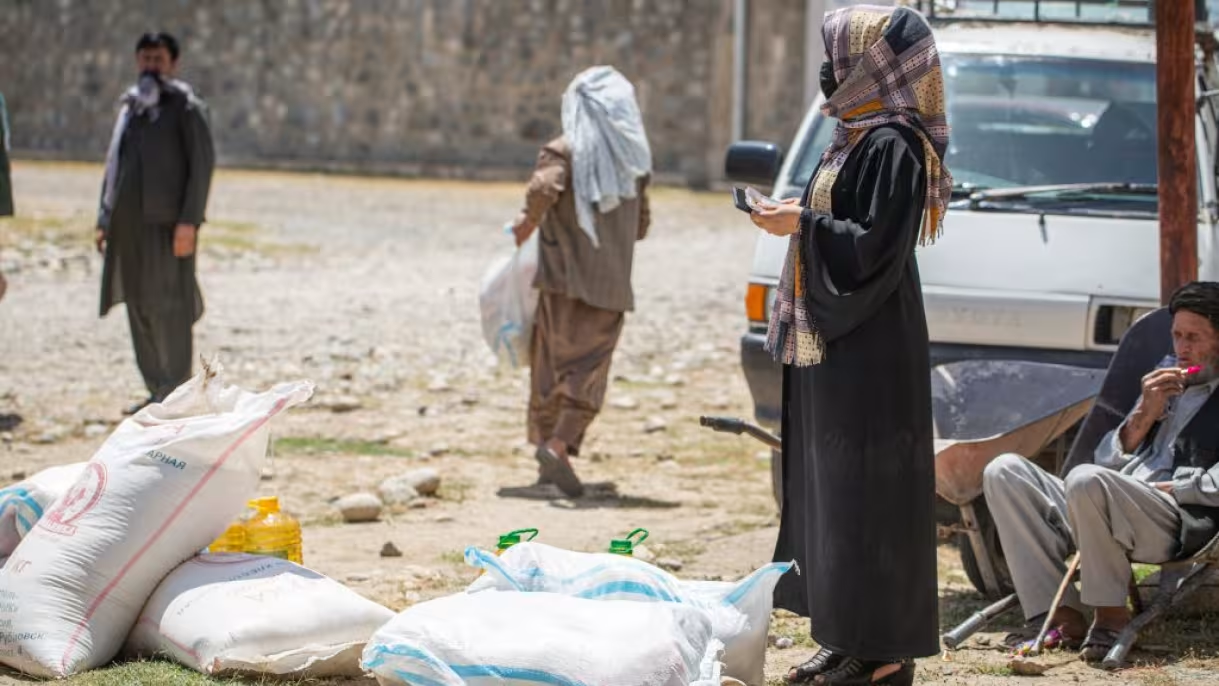

Aid Effectiveness in Afghanistan: Centering Women and Girls in the Fight Against Food Insecurity
The 79th UNGA Side Event
Aid Effectiveness in Afghanistan
Centering Women and Girls in the Fight Against Food Insecurity
Co-hosted by the Afghanistan Policy Lab at the Princeton School of Public and International Affairs, and the Permanent Mission of Afghanistan, and co-sponsored by the Permanent Missions of Canada, Finland, and the United Kingdom to the United Nations in New York.
The humanitarian and economic situation in Afghanistan remains a pressing concern for the international community. Decades of conflict, political instability, and natural disasters have left the country in a state of chronic crisis, necessitating sustained and effective international aid. The situation has further deteriorated following the Taliban's takeover of Afghanistan and their restrictive policies on women. These policies, particularly the ban on women working with NGOs, have had a profound negative impact on the lives of Afghan women, exacerbating their vulnerabilities and undermining the overall aid delivery in the country.
The rise in food insecurity, especially among families led by women, has created severe economic challenges for children, further compounding the humanitarian crisis. The inability of women to participate in the workforce has not only reduced household incomes but also hampered the distribution of aid, as women play a crucial role in reaching vulnerable populations.
This side event, organized during the UN General Assembly, aims to bring together key stakeholders to discuss and strategize on enhancing the effectiveness of aid in Afghanistan. The focus will be on improving aid delivery mechanisms, ensuring the efficacy of humanitarian aid, addressing food insecurity, and fostering economic stability. Special attention will be given to the gender dimensions of the crisis, highlighting the need for gender-sensitive approaches in aid distribution and economic policies.
Objectives of the Side Event:
- Assess the Current Situation: Provide a comprehensive overview of the current state of aid effectiveness in Afghanistan, highlighting successes, challenges, and areas needing improvement, with a focus on the impact of restrictive policies on women.
- Enhance Aid Delivery: Explore innovative strategies and best practices for improving the delivery of aid to ensure it reaches those most in need, especially women and children.
- Strengthen Humanitarian Response: Discuss the humanitarian crisis in Afghanistan and identify ways to enhance the coordination, efficiency, and impact of humanitarian aid.
- Address Food Insecurity: Examine the causes and consequences of rising food insecurity and propose targeted interventions to support vulnerable families, particularly those led by women.
- Promote Economic Stability: Examine the economic challenges facing Afghanistan and propose solutions to promote sustainable economic development and stability, with an emphasis on gender-sensitive policies.
Speakers
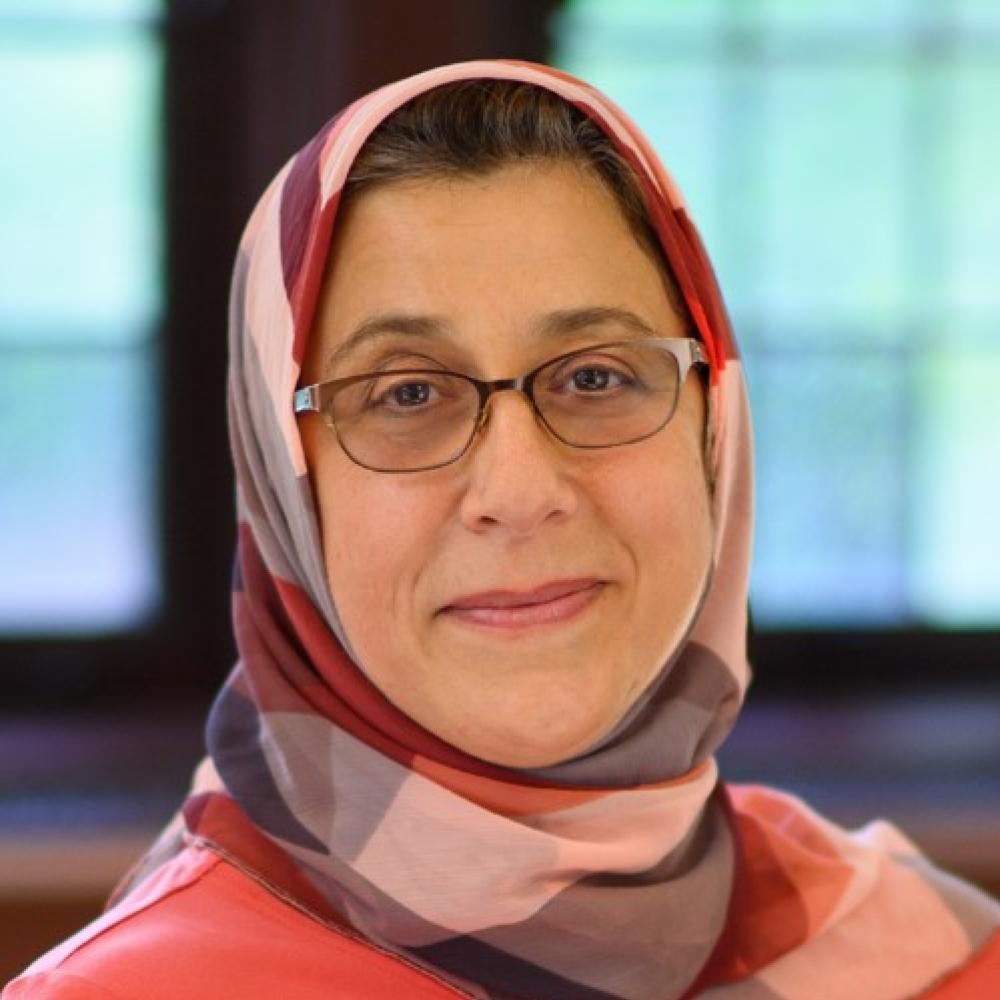
Amaney A. Jamal is Dean of the Princeton School of Public and International Affairs and the Edwards S. Sanford Professor of Politics, and Professor of Politics and International Affairs at Princeton University. She is the former Director of the Mamdouha S. Bobst Center for Peace and Justice. Jamal directs the Workshop on Arab Political Development and the Bobst Center-American University of Beirut Collaborative Initiative. Jamal is the co-founder and co-principal Investigator of the Arab Barometer Project (Winner of the Best Dataset in the Field of Comparative Politics (Lijphart/Przeworski/Verba Dataset Award 2010), and has secured over $5 million in grants for this and other projects from the U.S.-Middle East Partnership Initiative, National Science Foundation (NSF), NSF: Time-Sharing Experiments for the Social Sciences, Qatar National Research Fund, United States Institute of Peace, the International Development Research Centre, Carnegie Corporation of New York, and the Henry Luce Foundation. In 2006, Jamal was named a Carnegie Scholar. She holds a Ph.D. from the University of Michigan (2003). Her areas of specialization are the Middle East and North Africa, mass and political behavior, political development and democratization, inequality and economic segregation, Muslim immigration (U.S. and Europe), gender, race, religion, and class.
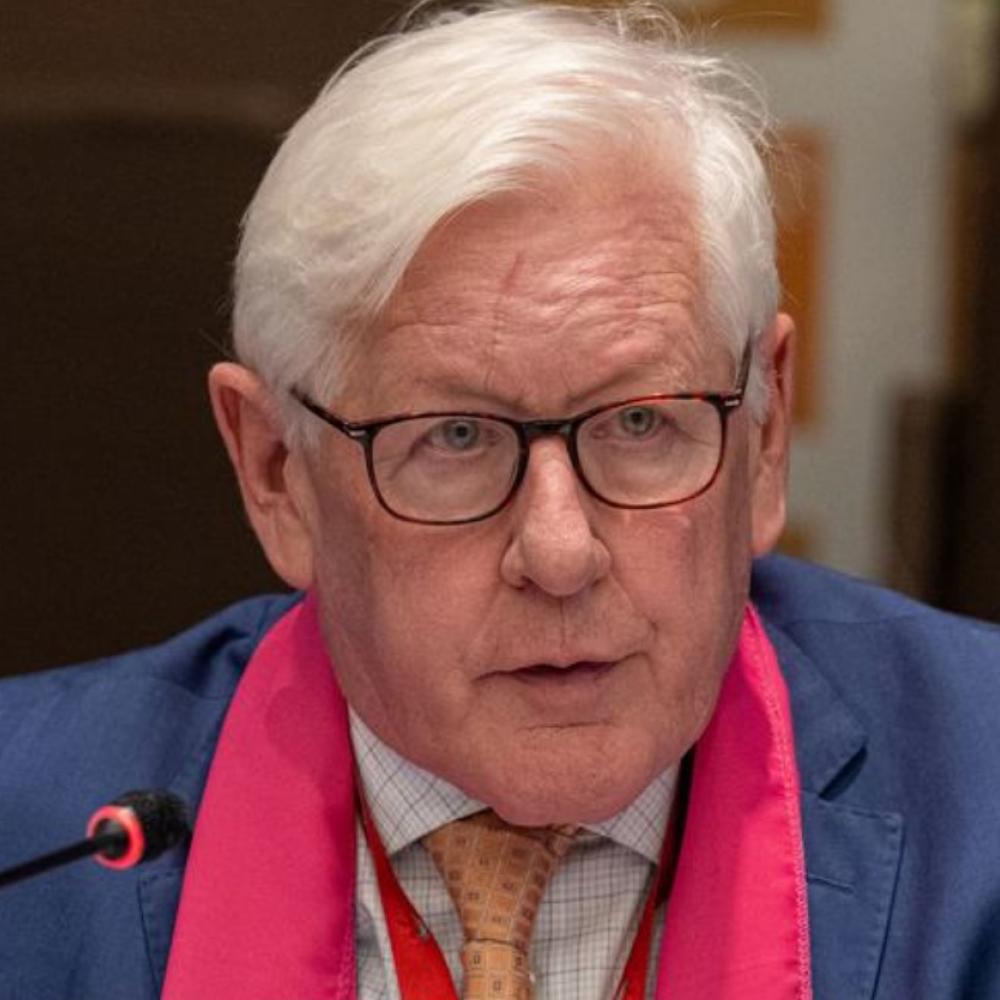
Bob Rae is the Ambassador and Permanent Representative of Canada to the United Nations in New York. He has served in this post since August 4, 2020. Since assuming this role has been active in all aspects of the work of the UN, culminating in his election to the Presidency of the Economic and Social Council (ECOSOC) for 2024‑25, the second Canadian to assume this role, and joins Lester Pearson (President of the General Assembly 1952‑53) and George Davidson (ECOSOC 1958‑59) as Canadians elected in their personal capacity to preside over UN Charter bodies. In October 2017, Mr. Rae was appointed as Canada’s Special Envoy to Myanmar. In this role, he engaged in diplomatic efforts to address the crisis in the country’s Rakhine State and wrote the report “Tell Them We’re Human” in 2018. In March 2020, he was named by Prime Minister Trudeau to be Canada’s Special Envoy on Humanitarian and Refugee Issues. This led to his report “A Global Pandemic Requires a Global Response”, which was made public shortly before his appointment as Ambassador to the UN. Mr. Rae is a Privy Councillor, a Companion of the Order of Canada, a member of the Order of Ontario, and has numerous awards and honorary degrees from institutions in Canada and around the world. In addition to several government reports, he is the author of six books, “From Protest to Power”, “The Three Questions”, “Exporting Democracy”, “Canada in The Balance”, “What’s Happened to Politics”, and “Reflections on a public life (The Symons Lecture”).
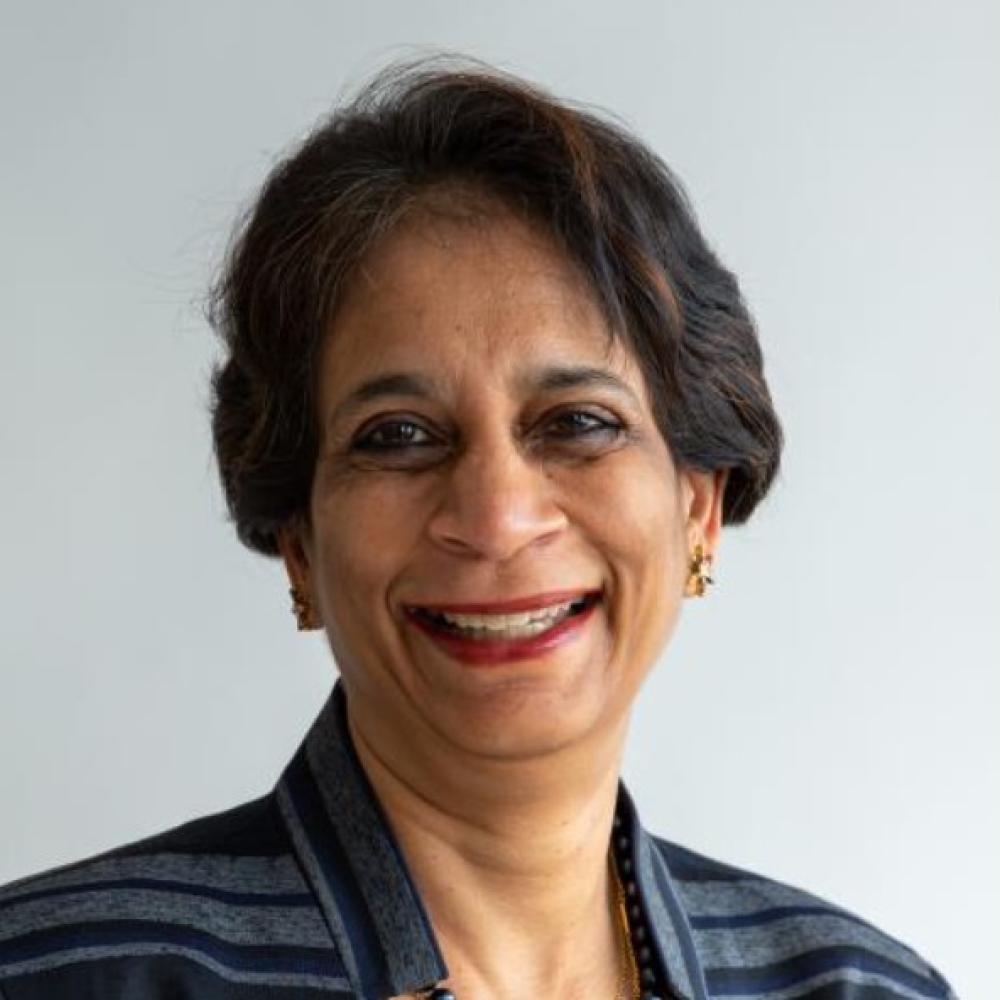
Kanni Wignaraja is the UN Assistant Secretary-General and Regional Director for Asia and the Pacific at the United Nations Development Programme (UNDP). With over 30 years of experience in the United Nations, she has held senior leadership roles in Africa, Asia and the Pacific, and at the United Nations in Geneva and New York.
Wignaraja brings in-depth knowledge of the Asia-Pacific region. She frequently speaks and writes on the complex challenges that will define the region’s future on human development and human rights, sustainability and disaster response, energy transition and climate change, inequality and social protection, development and climate finance. Wignaraja has particularly underscored the urgency of rethinking development strategies in complex crises, such as those in Afghanistan and Myanmar, as well as policy and governance reforms needed with intensifying interconnected economic and climate crises today. She is an advocate for people-centered perspectives and policies that secure peoples’ futures while protecting the environment.
Before taking up her current role, Wignaraja led UNDP’s Bureau for Management Services, where she oversaw UNDP’s central support services across human resources, finances, administration, budget, procurement, information technology, legal affairs, and security operations for the organization’s $5bn+ annual operations. From 2014 to 2018, Wignaraja led the UN’s Development Operations Coordination Office, overseeing a network of 130+ UN Resident Coordinators (RC) responsible for the coherent and efficient delivery of UN development assistance, globally. Prior to that, she held various leadership roles with the UN/UNDP, including as Senior Policy Advisor to the UNDP Administrator, Director of UNDP’s Capacity Development Group; UN RC/RR to Zambia, and also served in Indonesia and Vietnam.
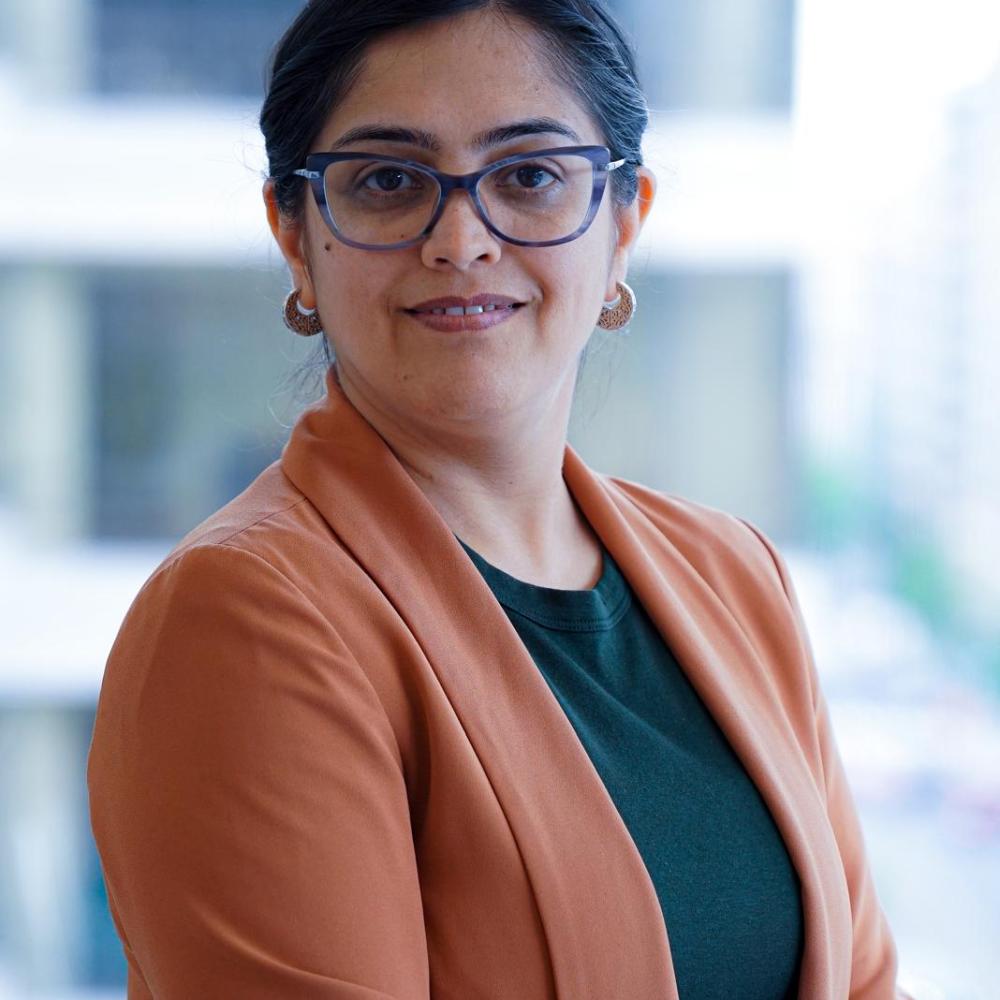
Manizha Wafeq is a distinguished development practitioner, expert in women’s economic empowerment, and a dedicated policy advocate. Her persistent advocacy efforts led to the establishment of the Afghanistan Women’s Chamber of Commerce and Industry (AWCCI), bringing about significant policy changes. Notable among these changes is the implementation of a 5% preferential clause for women-owned businesses in the national procurement procedure, ensuring increased access to government contracts. Additionally, her influence resulted in the allocation of 15-25% of industrial parks’ lands to small, medium, and women-owned businesses as per the national industrial park’s policy. During her professional career, she has worked with various international aid agencies such as Korea International Cooperation Agency (KOICA), German International Cooperation (GIZ), USAID’s Implementing Partners and United Nations Development Program (UNDP).
With over 20 years of experience in development, with a dedicated focus on women’s empowerment and gender equality, Manizha has positively impacted the lives of thousands of women. In her role as the PEACE THROUGH BUSINESS country facilitator and trainer, she has directly trained and mentored approximately 700 women from over 17 provinces of Afghanistan in the last 17 years. She has co-authored a training manual on Business Start-ups and contributed to the creation of “Gender and the Legal Framework of Afghanistan.”
She is founder of Bibi Khadija Award; An annual award honoring successful businesswomen and role models in Afghanistan. The award is named after the Prophet Mohammad's wife who was the first Muslim woman trader.
Ahmad Zia Wahdat is an applied economist focused on understanding household and food system behaviors and resiliency to identify policy solutions. His research explores consumer behavior, household financial decisions, and attitudes during natural disasters, economic shocks, or policy changes. He also examines the vulnerability and resilience of food supply chains, emphasizing socially and economically disadvantaged groups. His research aims to inform government efforts on household food insecurity and post-disaster food environments using causal inference, lab experiments, and machine learning.
Ahmad Zia has worked extensively with non-profit and academic organizations, including the World Bank, Harvard Business School, MIT Sloan School of Management, German International Cooperation (in Afghanistan), and CSIS, primarily in research and project management roles.
He holds a PhD in Agricultural Economics from Purdue University, a Master of Science in Economics from Tufts University, and a BA Honors in Economics from Oberlin College. Outside of his professional work, Ahmad Zia enjoys cooking, brewing coffee, reading, honing his coding skills, and exploring solutions for disadvantaged groups in society.
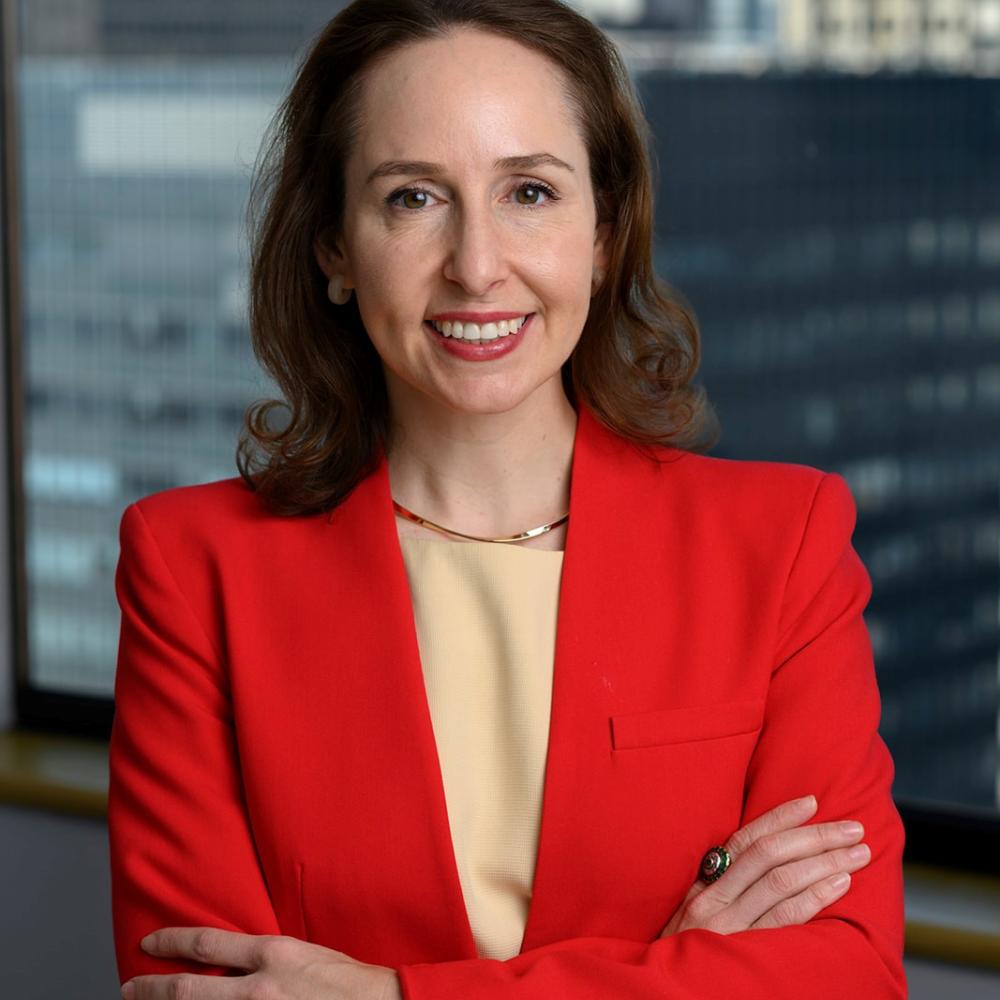
Dr Erica Gaston is the Senior Policy Advisor and Head of the Conflict Prevention and Sustaining Peace Programme at United Nations University Centre for Policy Research, where she leads a broad portfolio of peace and security and human rights work, including issues related to security council dynamics, peace operations and peacebuilding, climate, peace and security, and other thematic issues. She recently served as part of the Independent Assessment team mandated by Security Council resolution 2679 (2023) under Special Coordinator, Feridun Sinirlioğlu, and was also the lead author and researcher of the recently published General Assembly Digital Handbook on peace and security, as mandated by resolution 77/335. Her most recent book with Columbia University Press, Illusions of Control: Dilemmas in Managing U.S. Proxy Forces in Afghanistan, Iraq, and Syria, explores US support to proxy forces in Afghanistan, Iraq and Syria, and the policy and human rights dilemmas implicit in these partnerships.
Prior to joining UNU-CPR, Dr Gaston worked for 15 years as a practitioner, lawyer and conflict analyst, focusing in particular on issues of conflict-related human rights and civilian protection, rule of law development and security sector reform, and proxy and sub-State conflict dynamics. She has significant field experience in Afghanistan, Iraq, Yemen, Syria, and Pakistan, among others.
Dr Gaston previously served as Project Manager with the Global Public Policy institute (GPPi) in Berlin, overseeing research projects including a multi-year project mapping and analysing the influence of armed groups in Iraq and Afghanistan on regional, national and community dynamics; work advancing the agenda of the 2016 World Humanitarian Summit; and a groundbreaking project exploring changing international norms of self-defence. Prior to that, she led the Rule of Law portfolios for the United States Institute of Peace’s work in Afghanistan and Yemen, with a focus on conflict resolution, women’s access to justice, security sector transition, and informal justice. She worked for a number of years with the Center for Civilians in Conflict and then the Open Society Foundations leading documentation and advocacy related to civilian protection and conflict-related human rights in Afghanistan and Pakistan.
Gaston has published and provided commentary widely, including on Lawfare.com, War on the Rocks, the Guardian, Foreign Policy, CNN, Al Jazeera, BBC and others. Her past academic articles in the Harvard International Law Journal and the Harvard National Security Law Journal have examined emerging definitions of soldier self-defence and accountability for private security companies. She has also edited three book compendiums focused on the changing norms and practices in 21st-century conflict.
Dr. Gaston holds a Bachelor’s degree in international relations with a specialization in international security from Stanford University. She received her Juris Doctor from Harvard Law School and recently completed her Doctorate from the University of Cambridge. She has been a recipient of the German Chancellor Fellowship, the Gates Cambridge Scholarship, and served as a term member at the Council in Foreign Relations. She also serves as a Non-Resident Scholar at the Carnegie Endowment for International Peace.
Mohammad Aman Farahi is an economist with over a decade of experience in international development and public finance. He has served in key roles as the Director of Public Investment Management at the Ministry of Finance, country economist with the World Bank, and senior economist with the United Nations Development Program in Afghanistan. He holds a master’s degree from the Barcelona School of Economics and a second master’s degree from Duke University specializing in Public Financial Management. Aman has contributed to several publicly available policy and analytical notes, including the World Bank's Development Updates for Afghanistan 2015-2017, the Fiduciary assessment for the Ministry of Finance 2019, Afghanistan’s National Budget 2018 and 2019, the European Union Budget Support Operation third-party review 2020, and recent articles with the NYU. Aman is currently a part-time consultant with both the IFC and the World Bank in Washington D.C. doing economic analysis of development projects.
Sponsorship of an event does not constitute institutional endorsement of external speakers or views presented.

